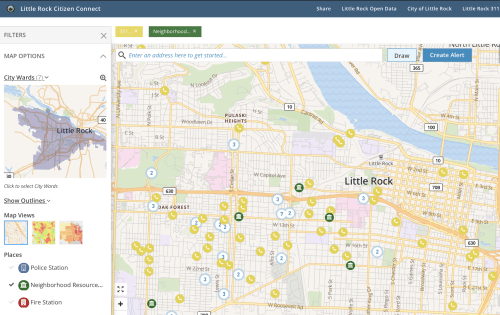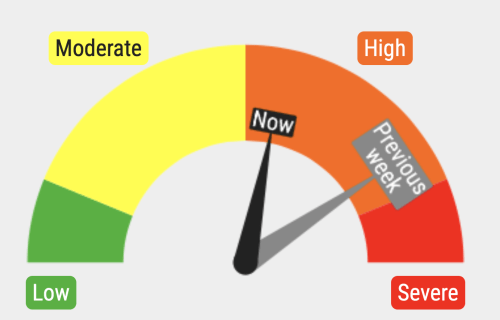Bloomberg Philanthropies expands cities' data programs across the Americas

As Bloomberg Philanthropies announces its newest investment in cities, the City Data Alliance, Bloomberg Cities takes a look at data’s growing importance in the success of local government, and how cities across two continents are now about to take data practices to the next level.
When Mike Bloomberg launched What Works Cities seven years ago, his goal was clear: to help city leaders use data and evidence better. It was a big investment in the idea that building data capacity within city halls would enable mayors to improve services and deliver results for residents. And it was grounded in Bloomberg’s own experience as a successful businessperson, philanthropist, and mayor of New York City that if you can't measure it, you can't manage it.
Today, as Bloomberg Philanthropies announces plans to expand its data offerings across the Americas with its new City Data Alliance, it’s clear this investment is paying off. As city halls upskill staff around core data practices such as performance analytics, evaluation, and results-driven contracting, they are improving local government in ways residents can feel in their everyday lives.
Cities are using data in new ways to house the homeless in Denver, protect homes from flooding in Norfolk, Va., fix street lights in Little Rock, Ark., keep trees healthy in Salinas, Calif., tackle gang violence in Detroit, and much more.
Two recent reports quantified these gains, showing for the first time how a maturing movement around data-driven city leadership is making a real difference across cities.
A report from Monitor Institute by Deloitte found that among 250 U.S. cities in the What Works Cities network, four out of five are using data better than they used to, particularly when it comes to making budget decisions and improving services. Sixty percent report improving police, fire, or ambulance response times; half report improvements in neighborhood safety; and 37 percent report measurably reducing waste and emissions or improving air or water quality.
Another report from the OECD looked at innovation and data use in cities. One key finding was that in cities with advanced data use practices, life satisfaction for residents is higher—by a margin of 3.5 percent.
These findings come at a time when the COVID-19 pandemic made clear how data is the new currency of the realm, a tool mayors could use like never before to fight the virus and save lives.
[Read: Mayors say using data effectively is saving lives during the pandemic]
By the time the COVID-19 pandemic hit, many cities had built strong data skills to fight the virus — a good example of what University College London Professors Mariana Mazzucato and Rainer Kattel call the “dynamic capabilities of the public sector” needed to navigate a fluid crisis. Mayors marshaled data on cases, hospitalizations, and more, using data dashboards and other real-time data flows to deploy resources like testing and vaccines to neighborhoods that needed them most.
In Long Beach, Calif., for example, city leaders leveraged neighborhood-level data to guide a vaccination outreach effort hailed as a national model for prioritizing equity. The campaign leaned on partnerships with community organizations with close ties in immigrant communities. “We used data every single day during the pandemic,” says Mayor Robert Garcia. “It helped us make decisions on vaccines, on testing, on drive through medical sites, on clinics. We can look at the data to adjust and serve people better and get them the services they need.”
Cities also used data in unprecedented ways to engage and communicate with residents about constantly changing health risks and the need for protective measures like mask mandates and social distancing. In Lincoln, Neb., city leaders created a color-coded “risk dial” to communicate with residents around COVID risks. It’s a speedometer-like alert system with a needle signaling whether current risks are low, moderate, high, or severe. The tool is one reason Lincoln and surrounding Lancaster County saw the lowest COVID mortality rate in Nebraska.
During the pandemic, “the world changed, but our commitment to data did not,” says Lincoln Mayor Leirion Gaylor Baird. “In fact, it became elevated. It provided a backbone for decision making and also allowed us to communicate, in the simplest terms, very complex information to the public so that they could be safe and take precautions to keep each other and our community safe.”
[Read: How data-driven innovation is fueling cities’ COVID response]
These leapfrog gains forged in crisis make today a moment of great opportunity to consolidate and accelerate the progress that city leaders have made with data. The Bloomberg Philanthropies City Data Alliance will identify 100 cities from across North and South America that are already sophisticated at using data, and empower them to show the world what the next frontier of data-driven governance looks like.
“Mayors and their teams relied upon data and analysis more than ever before to get their communities through the pandemic,” says James Anderson, head of Government Innovation programs at Bloomberg Philanthropies. “Now we hope to help cities build upon these gains and deepen the ways they're using data to understand and address problems, foster collaborations, and engage residents.”
The City Data Alliance will deliver specialized training and individualized city coaching to both mayors and their senior leaders, tapping into supports offered through the Johns Hopkins University Center for Government Excellence, the Harvard Kennedy School Government Performance Lab, Results for America, the Behavioral Insights Team, and Public Digital. Cities of more than 100,000 people across Canada and the United States, and cities of more than 300,000 across Latin America, can learn more about the program and apply here. Cities remain eligible to pursue What Works Cities Certification, which sets the standard for what well-managed data-driven city halls should strive for and offers training, resources, and connections with peers to help cities reach it.



